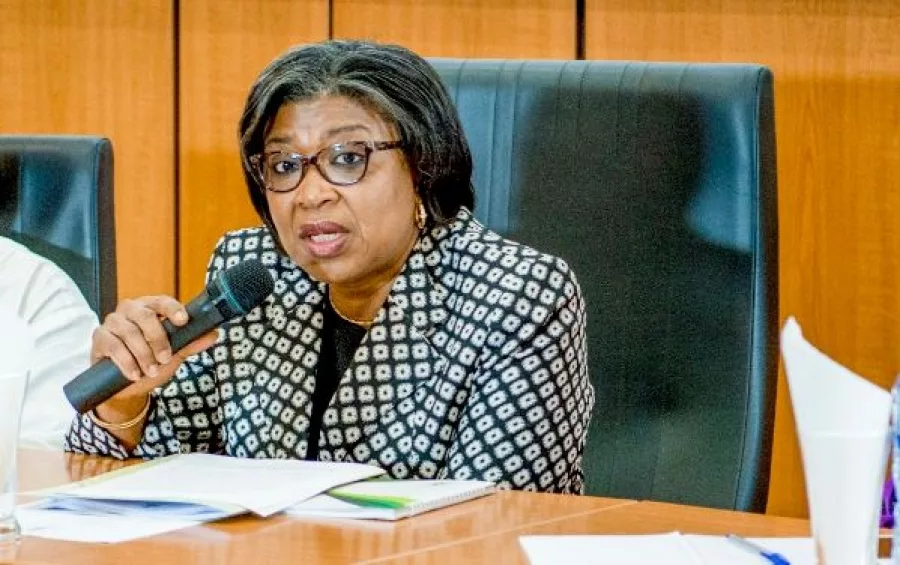Stakeholders have called for more discipline to curb excessive borrowing at all levels of government, especially, in the face of the mounting national debt now in the excess of N87.4billion.
Statistics from the Debt Management Office(DMO) revealed that Nigeria’s total public debt stock as at June 30 2023 amounted to N87.4 trillion. This comprises external debt of about N33.3 trillion (or $43.2 billion) and domestic debt of about N54.1 trillion (or $70.3 billion). Meanwhile, domestic debt Data for 36 States and the FCT, stood at N5,815,684,819,242.35, as at June 30, 2023.
Experts at a stakeholder dialogue on Implementing Section 45 of the Fiscal Responsibility Act (FRA) 2007, in Lagos, revealed that reports have showed that some states borrow, not for development sake, but to pay salaries, adding that, this can impede the growth of capital market and threaten financial stability which may create pressure on the federal government to provide financial assistance to ensure a continuing provision of public services.
The Secretary to the Government of the Federation (SGF), George Akume, averred that, the dialogue is not against borrowing, but borrowing in the right way and for the right reasons; for the good of the people of Nigerians, while urging government officials at all levels to follow the due process when it comes to borrowing.
Akume, who was represented by an official of the office of the SGF, Dr. David Eze, however assured to implement the recommendations from stakeholders at the forum, while applauding Fiscal Responsibility Commission (FRC) for carrying out its functions under the FRA 2007 and among other achievements, has helped to hugely improve the federal government independent revenue by mopping up surpluses in government owned enterprises.
Section 44 (1) of the Act stipulated that any government in the federation or its agencies and corporations desirous of borrowing shall, specify the purpose for which the borrowing is intended and present a cost-benefit analysis, detailing the economic and social benefits of the purpose to which the intended borrowing is to be applied and section 45 stipulated that all banks and institutions shall request and obtain proof of compliance with the provisions of this Part (Part X Borrowing) before lending to any Government in the Federation.
The deputy speaker, House of Representatives of Nigeria, Benjamin Kalu, who was represented by the chairman of the House of Representatives committee on aids, loans and debt management, Abubakar Hassan Nalaraba, said the stakeholders’ meeting is crucial, considering the rate at which state governments are borrowing, while harping on the need for them to desist from borrowing for consumption, which is worsening the country’s inflation. “We encourage states to stop depending on federal government and focus on what they can do to boost their internally generated revenue,” he advised.
In his remark, the chairman of the House of Representatives committee on aids, loans and debt management, Abubakar Hassan Nalaraba, averred that billions of dollars come into Nigeria in form of aids and grants, adding that, the country has no record of these funds. “Those grants don’t come into Nigeria, without processes and commercial banks are part of the processes. So it is important and imperative for commercial banks to work with the government, to make disclosure on how those grants are coming in, for accountability,” he appealed.
The executive chairman, FRC, Victor Muruako, revealed that, in the past two years, the Commission has reviewed some loans contracted at different times by 11 state governments and public institutions across six geo-political zones of Nigeria, from five local banks, adding that, “We note, with a sense of alarm, that none of these loans passed FRC’s basic test of compliance! This 100 per cent failure rate is enough to warrant a discussion of this nature.
“We are aware, for instance, that there already exists a sprinkling of lawsuits in courts across the country, challenging the propriety of some bank loans to governments and public institutions, based on provisions of the FRA 2007.
“Knowing the prevalence of the bandwagon effect amongst Nigerians, the implications of a small success by any of these litigants are obvious. Our fear is that, figuratively speaking, some chickens may come home to roost and, when that happens, public debt’s low risk nature may turn out to be an albatross around the neck of such banks and governments. The unsavoury effect may spread well beyond the individual banks to the entire macroeconomic space.”
Since the Commission has responsibilities towards macroeconomic stability, the executive director said the Commission thought it necessary to hold this stakeholder dialogue with a view to getting the perspectives of banks and also stemming the tide before it is too late.
He called on banks and financial institutions in the country to support the bold macroeconomic reform initiatives of the administration of His Excellency Bola Ahmed Tinubu, by being intentional in helping to reduce the risk of macroeconomic instability through ensuring that their lending practices consistently comply with provisions of the FRA.
Meanwhile, the director general, Nigeria’s Governor Forum (NGF), Asishana Bayo Okauru, disclosed that over 25 states have passed the Fiscal Responsibility Law (FRL) while 30 states have passed Debt Management Laws, domesticating core principles of the FRA regarding fiscal planning and management.
Okauru, who was represented by the senior programme manager, NGF, Olanrewaju Ajogbasile, however, assured that the secretariat will continue to advocate as good practice, the tenets, and provisions of the Act, through engagements, initiatives and discourse around fiscal transparency, accountability, and sustainability.
“My assurances are that we will, on our part as a stakeholder, offer perspective, listen to reason, embrace recommendations proffered and take same up with our principals. You can consider us partners for progress,” the DG assured.





